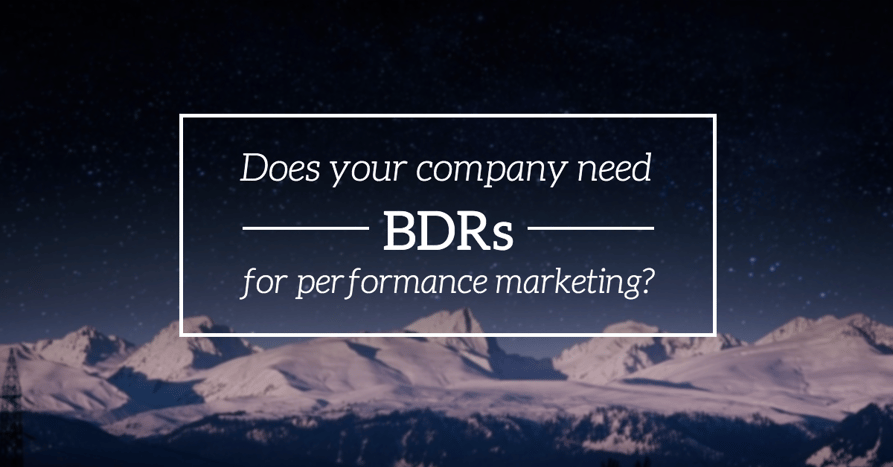Does your company need BDRs for performance marketing?

 One of the classic struggles of a marketing department is figuring out what happens to leads after they’re handed off to sales. Were they followed up on? Did anyone contact them? Did they close? Marketers want to know that their work has improved the company’s sales, but it’s not always easy to see what’s happened to strong leads after they’re handed off.
One of the classic struggles of a marketing department is figuring out what happens to leads after they’re handed off to sales. Were they followed up on? Did anyone contact them? Did they close? Marketers want to know that their work has improved the company’s sales, but it’s not always easy to see what’s happened to strong leads after they’re handed off.
From a sales team’s perspective, things look a little different. Sales reps are evaluated and compensated based on deals that close— not on the number of leads that were contacted. Following up with leads is a useful task to sales reps only to the extent that it affects sales. But it can be tough to know up front which leads will be worth the effort of reaching out, and which ones will be a dead end.
Since it’s a time-consuming task with unknown value, is it any wonder that sales reps usually put new lead follow-up at the bottom of the priorities in their day?
This is why having a BDR (business development rep) is a good idea. If you’re not familiar, this is a role that sits between the demand gen folks on the marketing team and the account executives on the sales team. They’re not tasked with closing deals; instead, they’re expected to help further qualify marketing-generated leads before passing them on to sales. This keeps account executives focused on only high-quality leads, while providing visibility for marketing teams about which kinds of leads are most valuable to generate.
What if your company doesn’t have a BDR yet?
Without anyone (or a team of people) in this role, you have a marketing team focused on generating leads, a sales team focused on deals— and nobody responsible for converting one to the other. If your company doesn’t have anyone responsible for qualifying marketing-generated leads before they go to sales reps, it’s time to put it on the radar with your company leadership and get their buy-in.
For companies that are just starting out and don’t have the volume of leads necessary to justify an entire role to qualifying leads, the responsibility for lead follow-up will fall to individual sales reps. But since this activity isn’t directly tied to compensation, odds are good that sales managers will need to stay heavily involved to ensure that follow-up is happening in an appropriate time frame. This work is tedious and time-consuming for sales reps and their managers alike, so as soon as the company is doing enough business to afford it, hiring a BDR is a great next step.
In addition to the benefit a BDR provides to growing sales teams, they are also valuable to marketing teams. It’s tough to justify a huge marketing budget and a sizable team if it’s not clear that their efforts are leading to more sales. With BDRs in place, it’s easier to get an understanding of which kinds of leads are truly sales-ready, which ones need more nurturing from marketing before being passed along, and which ones should be filtered out of the marketing and sales process altogether.
Bottom line: for a company to successfully embrace performance marketing, they’ll need BDRs to make it work. Truly great sales and marketing organizations need to be on the same page, and a BDR can help them do just that.






